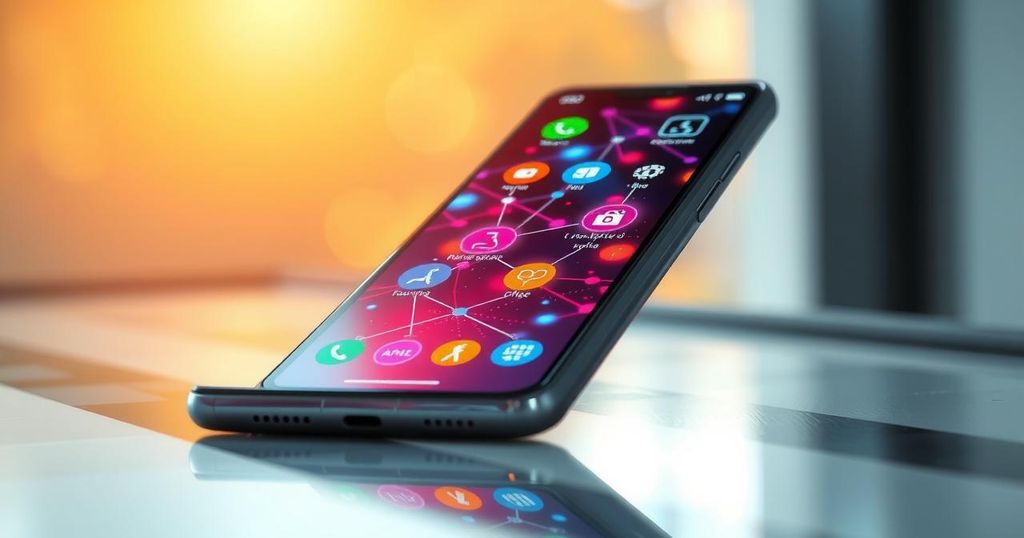Brastorne’s Initiative to Connect Africa via Feature Phones
Brastorne, a startup in Botswana, is converting basic feature phones into digital gateways for millions of Africans lacking internet access. Founded in 2013, it uses SMS, USSD, and IVR technologies to provide essential services. By addressing the digital divide, Brastorne supports economic and social opportunities for underserved communities, claiming to have impacted over five million lives across several African nations.
Botswana’s Brastorne is transforming basic feature phones into digital gateways, providing connectivity to millions of Africans without internet access. Utilizing technologies such as SMS, USSD, and IVR, the startup addresses the challenges faced by individuals in rural communities, who remain disconnected from essential services. Founded in 2013 by Martin Stimela and Naledi Magowe, Brastorne emerged to connect people to opportunities previously inaccessible due to lack of connectivity.
The company’s innovative solutions grant users access to myriad services, including agricultural resources, market prices, job listings, and health information—all without needing smartphones or costly data plans. Brastorne aims to “bridge the digital divide, offering economic, educational, and social opportunities to underserved communities,” as expressed by Stimela.
By employing offline resources like USSD and SMS, Brastorne has created an almost internet-like experience for its users. This enables farmers to obtain critical agricultural advice and job seekers to identify opportunities, thereby fostering community connectivity. Stimela noted the significant digital gap in Africa, where 80 percent of rural dwellers do not have affordable internet access due to expensive smart devices and data services, hindering their economic participation.
Brastorne stands out from its competitors, which include agri-tech organizations and social impact startups, by providing offline, online-like experiences via a multi-channel strategy and forming strong partnerships. This model offers affordable digital access to those unable to afford mobile data or smartphones. Thus far, the startup has positively impacted over five million lives across Botswana, Guinea, DRC, Zambia, and Cameroon.
The company has secured various impact investments and grant funding while establishing partnerships with mobile network operators to broaden its outreach. Stimela observed the strong uptake among rural communities, where mobile usage is high but smartphone and data costs prohibit access. Brastorne’s mAgri initiative, for example, has significantly enhanced farmers’ productivity by linking them to markets and real-time advice. Furthermore, the startup plans to expand into Madagascar, Mali, Burkina Faso, and Ivory Coast.
Brastorne generates its revenue through partnerships with telecom companies, sharing USSD/SMS revenues, and subscription fees, wherein users incur a nominal charge for accessing content. Revenue is reinvested into growth and improving services to affect marginalized communities across 19 African nations, as stated by Stimela.
In conclusion, Brastorne is effectively addressing the digital divide in Africa by transforming basic feature phones into vital connectivity tools. By leveraging affordable technologies such as SMS and USSD, the startup enables access to essential services for rural communities. Its commitment to reinvest revenues into expansion and service enhancement signifies a profound impact on underserved populations across the continent, paving the way for increased economic and social opportunities.
Original Source: disruptafrica.com








Post Comment